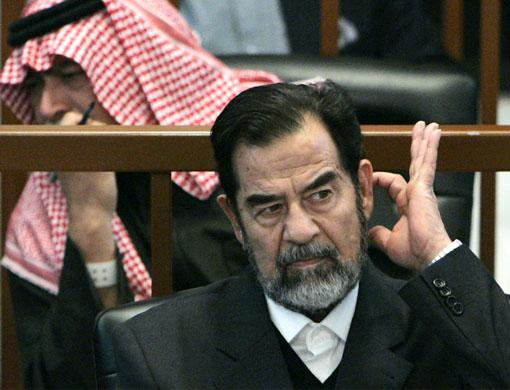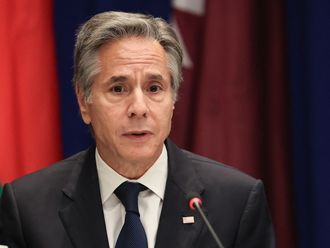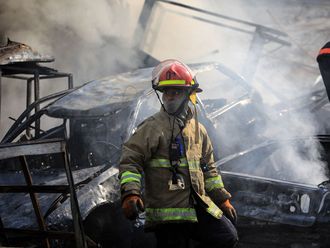
Manama: As a town in Jordan has shelved a plan to name a street after Iraqi former leader Saddam Hussain in the wake of the political and diplomatic furore it sparked in Jordan, Kuwait and Iraq, a Jordanian tribe has decided to name all the males born this year as Saddam and all its daughters "Raghad", "Hala" or "Rana" after Saddam's daughters.
Jordan's Prime Minister Sameer Al Rifae said his government would not accept the decision taken by the municipal council of Al Mazar, a small town 250 kilometres south of Amman, the capital.
"Prime Minister Al Rifae stressed that the idea of naming the street after Saddam would not be recognised by the Jordanian Hashemite Kingdom," Kuwait's Ambassador to Jordan Faisal Al Humoud Al Sabah was quoted as saying by Kuwait News Agency (KUNA).
Nabeel Al Shareef, Jordan's Minister of State for Information and Communications, told the Ammon news service that the residents of Al Mazar submitted a petition to the municipal council to revoke their decision about naming one of the town streets after Saddam Hussein. The council eventually accepted the petition and cancelled the decision, he said.
The council made the U-turn during a meeting on Saturday under local and regional pressure, led by Kuwait's foreign ministry.
Several Kuwaiti MPs planned to demand on Sunday a freeze of Kuwait's relations with Jordan if the street naming move was upheld.
Jordanian notables supported the call not to pay public tribute to Saddam.
"It is like stabbing Kuwait in the back because of a person who does not represent the official or even popular Jordanian view in any way," Ghazi Al Fayez, former parliament speaker, said. "It is just the case of an individual decision and I think that the Jordanian government will now replace him," he told Kuwaiti daily Al Rai.
Most Jordanians have opposed the idea of the street naming and held that Jordan as a country and the people should not be accused of making blunders, Al Fayez said.
"Unfortunately, there are dozens of Jordanians who made highly deplorable mistakes involving other countries. Every time, the government has distanced itself from them and invariably explained that it did not support what they did or said," he said.
According to Al Fayez, the town mayor, Mohammad Al Sarayrah, is a well-known Baathist who had studied in Iraq.
"There is now a petition circulating among the people in the area condemning his individual behaviour and decision," he said.
Baath party dominated Iraq for more than three decades, but was abolished in May 2003 after the fall of Baghdad and the end of the Saddam Hussein regime.
People familiar with the region said that Saddam Hussein who was executed in December 2006 remained a popular figure there and that the decision to name a street after him could be "one way to exact revenge on Iran's role and influence in Iraq."
In Amman, the view was that "the whole issue had been over-inflated and did not deserve all the attention it was getting."
However, the controversial issue could be compounded after Al Nawaysa tribe, from Al Mazar area, said that the decision to cancel the naming of the street after Saddam was taken after "blatant interference in Jordan's domestic affairs."
"The tribe council held a meeting following the latest developments and has agreed to ask all the members of the tribe to name their sons born in 2010 'Saddam' and to name their new-born daughters 'Raghad', 'Hala' or 'Rana' after the daughters of the martyr Saddam Hussein," the tribe council said.
"We will also start collecting donations from the tribe members to build a multi-purpose hall that we will name 'Hall of the Greatest Martyr Saddam Hussein' in tribute to his glory," the tribe council said.












